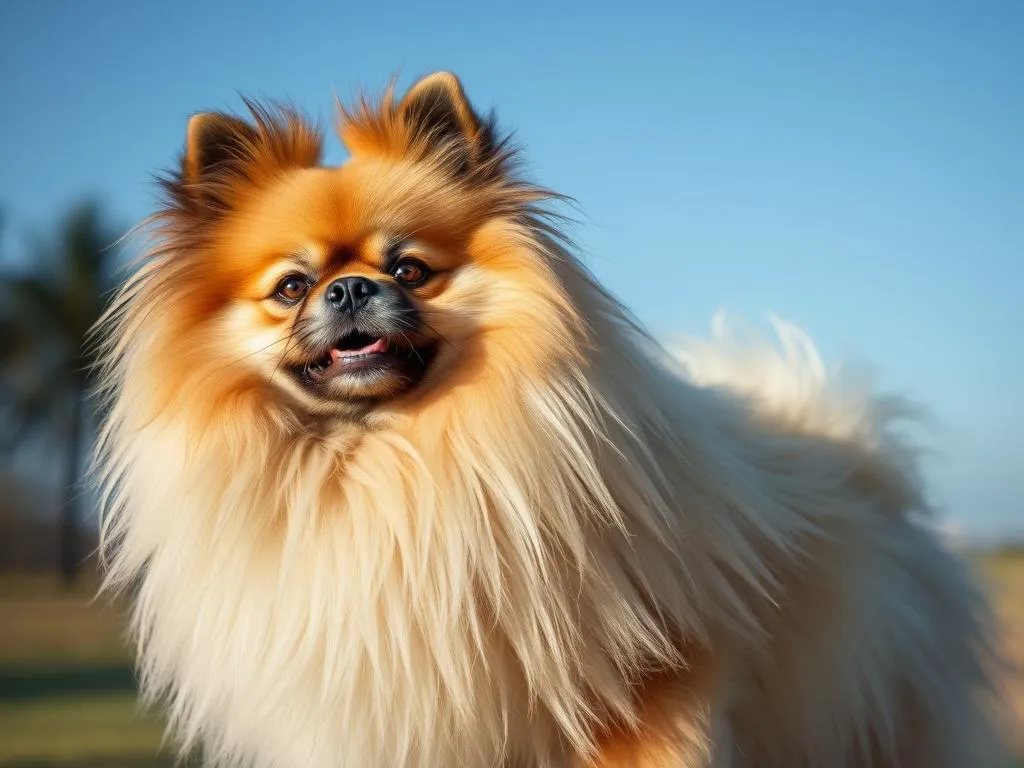
Pomeranians have surged in popularity over the years, becoming beloved companions for many across the globe. Their fluffy coats, lively personalities, and small size make them an appealing choice for potential pet owners. However, before committing to this adorable breed, it’s crucial to grasp both the Pomeranian pros and cons to ensure that they align with your lifestyle and expectations.
Understanding the Pomeranian Breed
History and Origins
The Pomeranian breed traces its roots back to the larger Spitz-type dogs that were used for herding sheep in the Arctic regions. As these dogs were bred down in size, they made their way to Pomerania (now part of Poland and Germany), where they became companions to nobility. The breed’s popularity soared in the 18th century when Queen Victoria of England adopted a small Pomeranian, further enhancing its appeal.
Physical Characteristics
Pomeranians are small dogs, typically weighing between 3 to 7 pounds, with a height of about 6 to 12 inches at the shoulder. Their double coat is thick and fluffy, and they come in a variety of colors including orange, black, cream, and blue, with many variations and patterns. Their distinctive fox-like face and lively expression add to their charm.
Temperament and Behavior
The personality of a Pomeranian can be described as spirited, curious, and intelligent. They are known for their playful nature and often act as if they are much larger than their actual size. Pomeranians are generally friendly and can adapt well to various living situations, but they can also be wary of strangers and may exhibit protective behaviors.
Pros of Owning a Pomeranian
Companionship
One of the most significant Pomeranian pros is their affectionate nature. These dogs are incredibly loyal and tend to form strong bonds with their owners. Whether you’re a family with kids or a single individual, Pomeranians thrive on companionship and often become devoted additions to the home.
Low Exercise Requirements
Despite their energetic demeanor, Pomeranians have relatively low exercise needs compared to larger breeds. They are well-suited for apartment living, as they can fulfill their activity requirements through indoor play and short walks. Daily play sessions can keep them happy and healthy without the necessity for extensive outdoor exercise.
Intelligence and Trainability
Pomeranians are known to be quick learners, making them relatively easy to train. They respond well to positive reinforcement and can grasp commands swiftly. From basic commands like “sit” and “stay” to more complex tricks, such as rolling over or playing dead, Pomeranians love engaging in training sessions that stimulate their minds.
Minimal Grooming Needs
When it comes to grooming, Pomeranians have moderate requirements. Their thick coats do require regular brushing to prevent matting, but their low shedding can be a plus for many owners. A weekly grooming session can keep their fur looking its best while also providing quality bonding time.
Good for Allergy Sufferers
While no dog is completely hypoallergenic, many Pomeranians produce fewer allergens compared to other breeds. Their minimal shedding can be a significant advantage for those who suffer from allergies, making them a good choice for sensitive individuals.
Cons of Owning a Pomeranian
Health Issues
As with any breed, owning a Pomeranian comes with its share of potential health concerns. Common issues include dental problems, patellar luxation, and heart conditions. Regular vet check-ups are necessary to monitor your furry friend’s health and catch any issues early.
High Energy and Playfulness
Pomeranians are known for their vibrant energy, which can sometimes lead to excessive barking. They require mental and physical stimulation to keep them engaged; otherwise, they may resort to unwanted behaviors. This high energy can be both a blessing and a challenge for owners.
Separation Anxiety
Another downside is their tendency to develop separation anxiety. Pomeranians thrive on companionship and may become distressed if left alone for extended periods. This anxiety can manifest in destructive behaviors, so it’s essential to train them gradually to be comfortable with alone time.
Socialization Needs
Early socialization is crucial for Pomeranians. They need to be exposed to different environments, people, and other pets to develop into well-rounded adults. Poor socialization can lead to fearfulness or aggression, making it vital to introduce them to various situations from a young age.
Grooming Challenges
While they have minimal shedding, maintaining the Pomeranian’s fluffy coat can be challenging. Regular brushing is essential to prevent matting and tangling, especially behind the ears and in the armpits. Neglecting grooming can lead to uncomfortable knots that may require professional attention.
Lifestyle Considerations
Time Commitment
Taking care of a Pomeranian requires a consistent time commitment. Daily routines should include feeding, exercise, grooming, and training sessions. The more time you invest in your Pomeranian, the more rewarding the relationship will be.
Financial Investment
Owning a Pomeranian comes with financial responsibilities. Potential costs include food, grooming supplies, veterinary care, and any training classes. Budgeting for these expenses can help prospective owners prepare for the financial commitment of pet ownership.
Space Requirements
Pomeranians adapt well to various living environments. They do not require a large yard, making them suitable for apartments or smaller homes. However, it’s essential to provide a safe space for them to play and explore, as they are curious little dogs.
Making the Decision
Assessing Your Lifestyle
Before bringing a Pomeranian into your life, consider whether your lifestyle aligns with the breed’s needs. Ask yourself questions like: Do you have enough time to commit to their care? Are you ready to manage their grooming and training? Understanding your life circumstances will help you make an informed decision.
Alternatives to Pomeranians
If you’re drawn to the idea of a small dog but unsure about the Pomeranian pros and cons, consider exploring other small breeds. Breeds like the Chihuahua, Dachshund, or Maltese may share similar traits, but each has unique characteristics that may suit different lifestyles.
Finding a Reputable Breeder or Rescue
If you decide to move forward with a Pomeranian, it’s vital to find a reputable breeder or consider adoption from a shelter. Responsible breeders will prioritize the health and temperament of their dogs, while rescues can offer loving pets in need of a home.
Conclusion
In summary, understanding the Pomeranian pros and cons is essential for anyone considering this lively breed. Their affectionate nature, low exercise requirements, and intelligence can make them excellent companions, but potential health issues, grooming challenges, and the need for socialization should also be taken into account.
Before making a commitment, reflect on your lifestyle and preferences to ensure that a Pomeranian fits into your life. Each dog is unique, and careful consideration will lead to a fulfilling relationship with your future furry friend.








